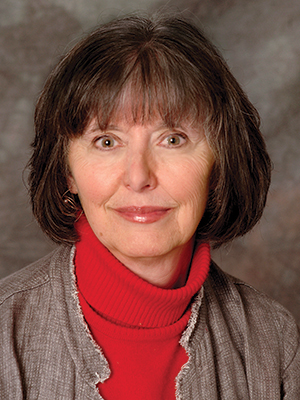
Hester Hill Schnipper
Photo courtesy of Beth Israel Deaconess Medical Center
WHEN OUR WORLD SUDDENLY CHANGED in 2020 with widespread lockdowns in the U.S., few of us imagined we would still be waiting in our homes for the pandemic to pass. As we close in on almost a year of limited activities and social contact, we may find ourselves feeling malaise, depression and even anger.
It was easier to manage during warmer weather, when we could be outside and have socially distanced park or garden meetings with friends. But for many of us, especially those who live in areas that face a cold winter, these next months may be more challenging.
Cancer patients and survivors have additional concerns. People currently receiving cancer treatment, those with advanced disease, those with lung cancer, or those who have had bone marrow or stem cell transplants may face an increased risk of becoming seriously ill if they are infected with the virus.
Here are some things to consider as we try to balance our legitimate fears while honoring our desires to live to the fullest:
1) Understand your risk. Talk to your doctor about whether your cancer treatment or current medical status puts you at greater than average risk for contracting COVID-19.
2) Practice appropriate safety measures. Wear masks in public, wash your hands frequently, and follow social distancing guidelines set by the Centers for Disease Control and Prevention or your state public health officials.
3) Consider your choices for activities as if you are making withdrawals from a risk bank account. Each time you engage in anything risky, you make a withdrawal. Try to limit the number and size of those withdrawals for your safety.
4) Think about your choices based on your values. A family crisis where you need to be present probably takes precedence over anxiety you may feel about exposure, but a nonessential errand may not.
5) There are times when our needs outweigh the potential risk of contracting the virus. In these cases, the challenge is to make the activity as safe as possible. If you decide to invite a friend over for a visit, make sure to wear a mask and sit as far apart as possible.
6) Find alternative ways to meet your mental health needs. It s a challenge that we can t be with our friends or participate in our usual volunteer activities. But we can take care of ourselves in other ways by eating healthy foods, allowing ourselves some treats and getting regular exercise. Technology can also provide an opportunity to virtually visit with family and friends.
7) Acknowledge how hard the pandemic is for us all. Few of us are sad to see 2020 fade into the past, but the lost time is especially painful for people with cancer, particularly if they are facing a late-stage diagnosis. It is completely appropriate to be sad and angry about the theft of your time.
8) I have written this before in this column, but it s worth repeating: This, too, shall pass.
Cancer Today magazine is free to cancer patients, survivors and caregivers who live in the U.S. Subscribe here to receive four issues per year.





